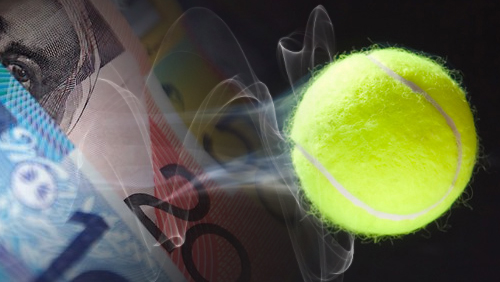Secret files showing that international crime syndicates have organized match fixing at the top level of world tennis have come out in time for the launch of the Australian Open.
 A joint investigation by the BBC and BuzzFeed News has found that more than 70 players appeared on nine leaked lists of suspected fixers, including 16 players ranked in the world top 50, some of them Grand Slam champions and Wimbledon doubles winners.
A joint investigation by the BBC and BuzzFeed News has found that more than 70 players appeared on nine leaked lists of suspected fixers, including 16 players ranked in the world top 50, some of them Grand Slam champions and Wimbledon doubles winners.
According to reports, which were published as the first major of the 2016 Grand Slam—the Australian Open—kicks off Monday, players are being approached in hotels and offered $50,000 (AUD73,100) or more to fix their matches. Gambling syndicates in Russia, Italy and Sicily have made “hundreds of thousands” of British pounds betting on the scores of matches right up to the top level, including Wimbledon and the French Open.
The leaked files came from the 2008 probe, which was triggered by a match in Poland in August 2007 between Russia’s Nikolay Davydenko and Argentine player Martin Vassallo Arguello. The game attracted millions of dollars’ worth of highly suspicious bets from Russian-based accounts. It also showed that Arguello exchanged 82 text messages with the suspected ringleader of an Italian gambling syndicate.
The British media claimed that according to documents, the Tennis Integrity Unit (TIU), set up by the Association of Tennis Professionals (ATP) in 2008, permitted all the players suspected of fixing the matches to continue playing. In fact, eight players are in the main draw of the 2016 Australian open.
“A number of organizations and individuals in positions to spot suspicious matches relayed their findings to the TIU, but according to the leaked files the TIU repeatedly dropped the ball,” claimed BBC and Buzz Feed.
ATP president Chris Kermode told a press conference in Melbourne that there was no truth to suggestions that tennis authorities were not taking match-fixing seriously or failing to investigate allegations.
“The Tennis Integrity Unit and Tennis Authorities absolutely reject any suggestion that evidence of match fixing has been suppressed for any reason or isn’t being thoroughly investigated,” said Kermode. “In its investigations, the Tennis Integrity Unit has to find evidence, as opposed to information, suspicion or hearsay. We’re confident the Tennis Integrity Unit is doing what it can, and tackles this issue.”